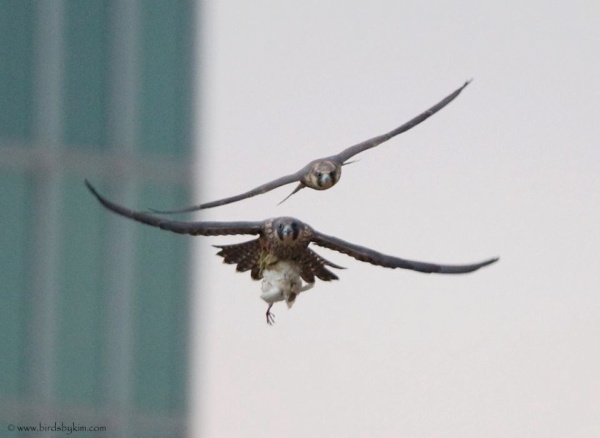
June is “air show” month for our local peregrines. Where the nests have emptied the action is in the air.
After they fledge, young peregrines are dependent on their parents for six to ten weeks while they learn to supply their own food.
Fortunately, as with all predators, they’re born with an instinct to hunt. Kittens instinctively stalk and pounce. Peregrines are programmed to chase. This means they can develop hunting skills without much parental assistance — which is why hacking works.
In their first weeks after fledging, juvenile peregrines chase anything that flies: their parents, their siblings, butterflies, even turkey vultures.
After two to three weeks they begin to focus on prey the right size. Eventually they capture something, almost by surprise.
In the meantime they play at all the right moves: chasing, mock dogfights, roll-overs, talon grappling and prey exchanges.
Above a juvenile in Wilmington, Delaware chases his sibling who won the prize.
Keep looking up and you’ll see the air show.
(photo by Kim Steininger. This Tenth Page is inspired by and quoted from page 501 of Ornithology by Frank B. Gill.)
Kate, I love the “almost by surprise” statement. I can just picture it!